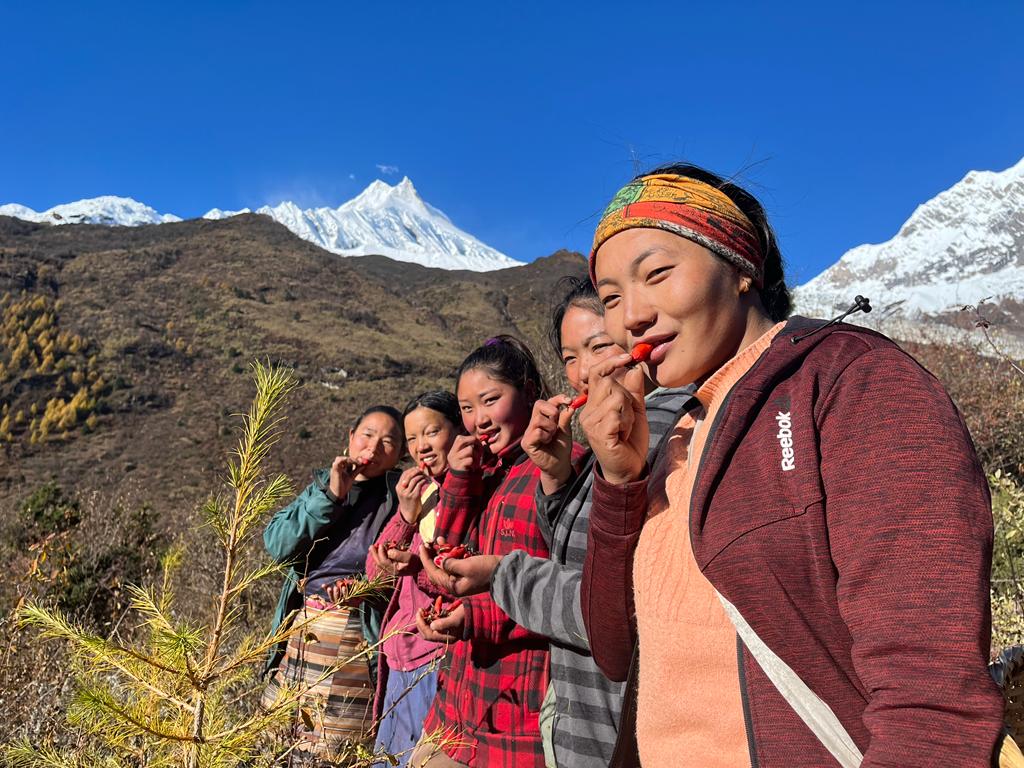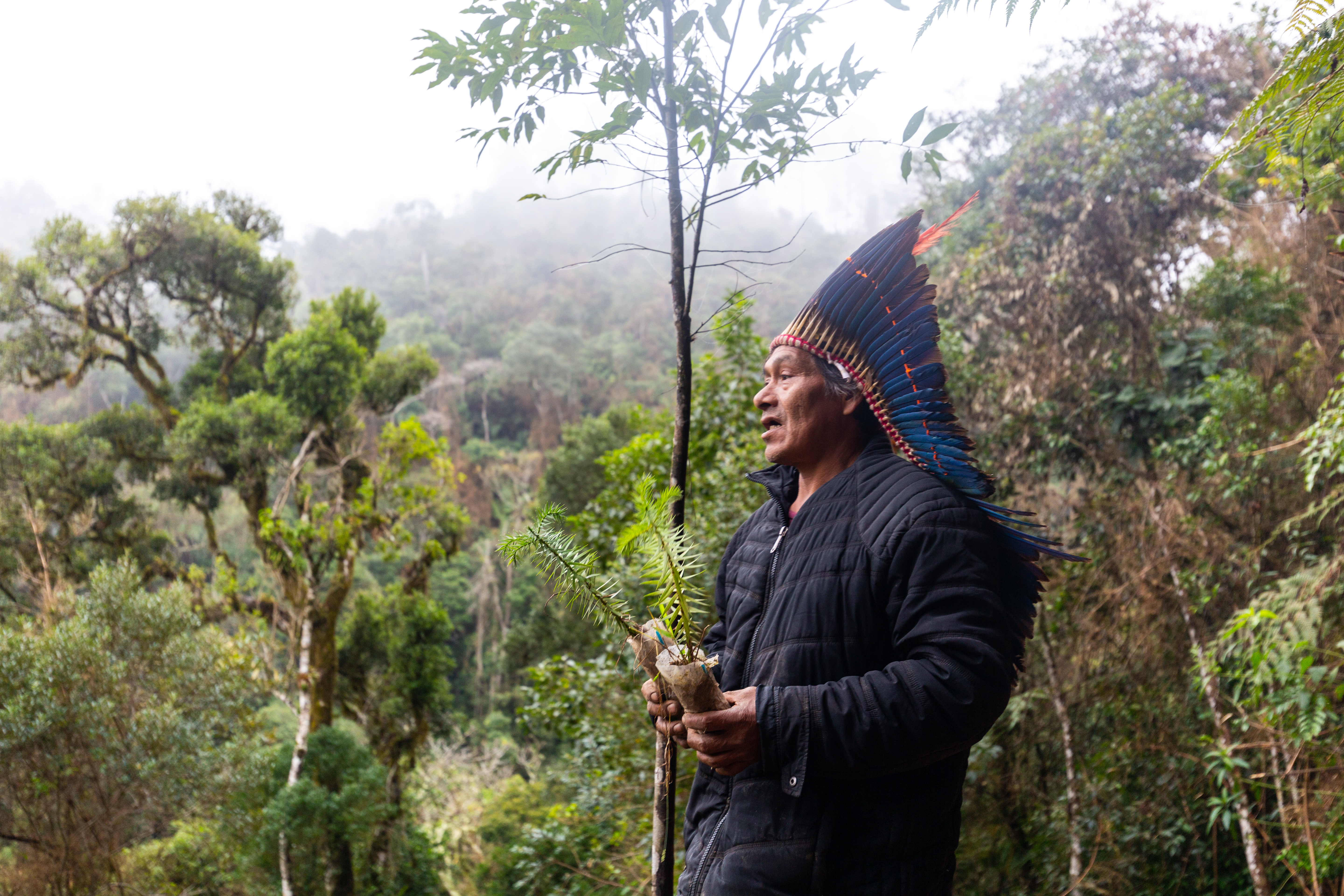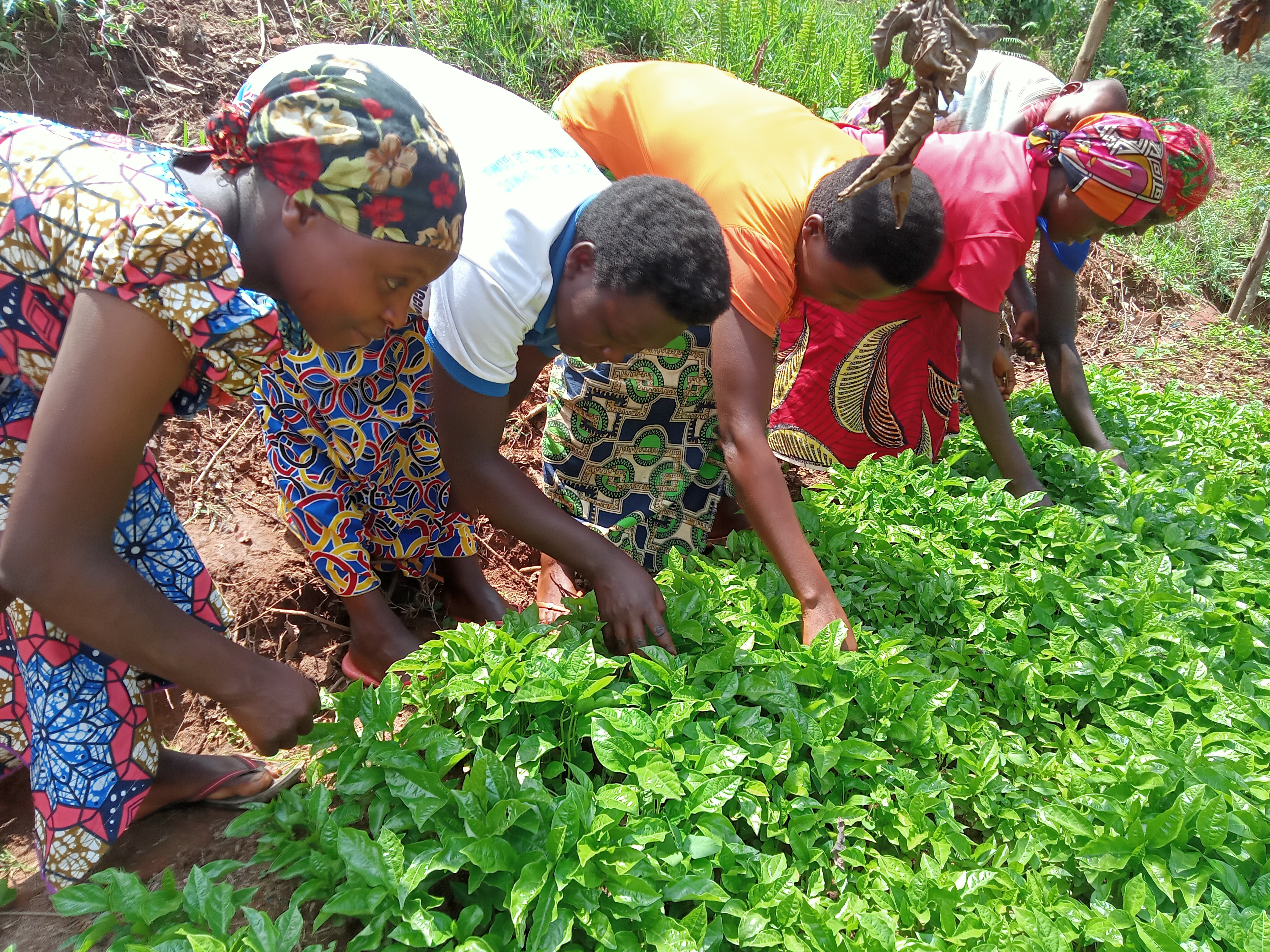Equator Prize 2023 winners pave the way to Global Biodiversity Framework
August 9, 2023

Tergar Charity Nepal is one of this year's Equator Prize winners. They work on crop diversification, solar greenhouses, menstrual health awareness and literacy.
Every year on August 9th, the International Day of the World's Indigenous Peoples sheds light on the remarkable contributions and resilience of Indigenous communities. This year's theme, "Indigenous Youth as Agents of Change for Self-determination," places a spotlight on the vital role played by young Indigenous leaders in shaping our collective future. With a strong focus on fostering a green climate transition, mobilizing for justice, and fostering intergenerational connections, the celebration amplifies the urgent need for action in the face of biodiversity loss and climate change.
Indigenous peoples and local communities have emerged as a beacon of hope amidst the intensifying planetary crises. These remarkable custodians of the Earth's most essential ecosystems, home to a staggering 80 percent of the world's biodiversity, and immense stocks of carbon, hold the key to keeping our planet within safe planetary boundaries. Recognizing their indispensable role, the Kunming-Montreal Global Biodiversity Framework (GBF) was adopted during the 15th meeting of the Conference of the Parties to the Convention on Biological Diversity. The GBF outlines a bold roadmap for achieving harmonious coexistence between people and nature by 2050. In Target 22 of the GBF, the full and effective participation of Indigenous and local communities is emphasized, with a specific focus on inclusive representation of youth.
In this pivotal moment, where our future hangs in the balance, it is imperative that Indigenous youth are given a seat at decision-making tables. These young leaders exercise their right to self-determination by actively shaping policies that will determine our collective destiny. The International Day of the World's Indigenous Peoples serves as a poignant reminder of their remarkable contributions. Indigenous youth are mobilizing communities, shifting the narrative around Indigenous peoples, and raising awareness about the issues they face. They foster intergenerational dialogue, revitalizing and promoting their cultural identities while combating the pressing challenges posed by climate change and biodiversity loss.
Celebrating its 21st anniversary, the Equator Initiative, a UNDP-led partner initiative, plays a pivotal role in recognizing and celebrating outstanding Indigenous-led and community-based organizations through the Equator Prize. In 2023, 10 exceptional initiatives have been awarded the prestigious Equator Prize, joining a network of 275 previous winners. These initiatives have been carefully selected from a pool of over 500 nominations, spanning 108 countries. Many of them serve as shining examples of intergenerational equity and showcase the role of youth, including Indigenous youth-led efforts, and all of them exemplify the power of nature-based solutions in driving transformative change for a nature-positive future.
The Equator Prize winning organizations, spearheaded by Indigenous peoples and local communities, also showcase the immense potential and creativity that arises from collaborative partnerships. These initiatives exemplify how Indigenous youth can lead the way in crafting sustainable and inclusive solutions that benefit both people and the planet. Their efforts embody the spirit of self-determination and serve as important milestones in our collective journey towards a more just, resilient, and environmentally balanced world.
As we commemorate the International Day of the World's Indigenous Peoples, let us acknowledge the significant contributions made by Indigenous youth. Let us celebrate their unwavering dedication, their role as agents of change, and their capacity to shape a brighter and more sustainable future for all. By embracing their wisdom, cultural richness, and deep connection to the Earth, we can forge a path towards a world where nature and humanity thrive in harmony. UNDP will be celebrating all 10 winners during this year’s Nature for Life Hub in early November – please join us!

Instituto Zág is dedicated to the reforestation and preservation of Brazil's critically endangered Araucaria tree.
Embracing the interdependence of people and nature
The Instituto Zág from Brazil, led by Indigenous youth, is dedicated to the reforestation and preservation of the critically endangered Araucaria tree (Zág), which holds deep spiritual and cultural importance for the Xokleng peoples. Through their tireless efforts, the initiative not only safeguards the survival of the tree but also ensures the conservation of ancestral wisdom and cultural identity.
Blending Indigenous knowledge with science principles
The Uru Uru Team employs an innovative method to protect the Uru Uru lake in Bolivia from the impacts of urban waste. Through the development of floating rafts utilizing recycled materials and native plants, the Indigenous youth-led initiative has successfully reduced lake pollution by 30 percent, while safeguarding the well-being of the Indigenous community and preserving their knowledge.
Nurturing forests and community well-being
Comuna Playa de Oro, an Afro-Ecuadorian settlement in Esmeraldas province of Ecuador, overcame threats like illegal mining and deforestation by safeguarding 10,000 hectares of forest. Through sustainable activities such as ecotourism and cacao production, the community thrives while preserving nature and its cultural heritage.
Uniting for Indigenous rights and our planet
The Inuit Circumpolar Council (ICC) brings together 180,000 Inuit across Nunaat in Greenland to protect the Arctic ecosystem and defend land and ocean rights. Through initiatives like the Pikialasorsuaq Commission, ICC pioneers Inuit-managed protected areas, preserving ecological integrity, fostering community consultation, and setting a groundbreaking precedent for conservation and protection of Indigenous rights.
Empowering communities through sustainable natural resource management
The Asociación Tikonel fosters sustainable natural resource management and empowers communities in Guatemala. Through initiatives like soil conservation, reforestation, improved cookstove distribution, and collaboration with local organizations and enterprises, they successfully promote inclusion, gender equity, and Indigenous peoples’ rights.
Building inclusive and sustainable value chains
Tergar Charity Nepal (TCN) empowers the community of Samagaun, Nepal, through initiatives such as crop diversification, solar greenhouses, menstrual health awareness, literacy classes, and value chain projects with a Canadian tea company. TCN’s projects successfully improve food security, livelihoods, and empower women through income generation.

PVC Burundi promotes self-sufficiency through natural alternatives for land restoration and sustainable food production.
Building community resilience through land restoration
Perfect Village Communities Burundi (PVC Burundi) empowers local communities, particularly women and youth, by promoting self-sufficiency through natural alternatives for land restoration and sustainable food production. It has successfully restored land, improved farm yields, addressed food security, and contributed to environmental preservation, having planted over 500,000 seedlings and regenerated 5,000 hectares of land to date.
Claiming legal ownership as nature’s guardian
The Kpanyan Community Land Development and Management Committee (CLDMC) made history by gaining formal ownership of their traditional land in Liberia, preserving over 40,000 hectares of biodiverse forest. Their success inspired seven other districts in Southeast Liberia to register their land rights and develop sustainable land use plans, covering a combined area of 700,000 hectares.
Putting youth at the centre of conservation efforts
Zambia's Young Emerging Farmers Initiative (YEFI) empowers rural and urban youth through sustainable agriculture, creating over 50 youth-led enterprises and 1,000 jobs. YEFI's efforts in biodiversity conservation, organic farming, and land regeneration contribute to creating resilient ecosystems while empowering youth through policy and awareness campaigns.
Restoring nature, restoring our future
The Kapunungan sa Gagmay’ng Mangingisda sa Concepcion (KGMC) is dedicated to restoring mangrove forests and preserving coastal ecosystems in the Philippines. Through community stewardship, environmental education, and law enforcement, they successfully rejuvenated 10,000 to 12,000 hectares of mangroves, revitalizing the ecosystem and reintroducing vanished species to the Sibugay Bay, ensuring a sustainable environment for future generations.
Learn more about the 2023 Equator Prize winners on the Equator Initiative’s website, and join us for a celebration on 7 November at the virtual Nature for Life Hub.

 Locations
Locations
